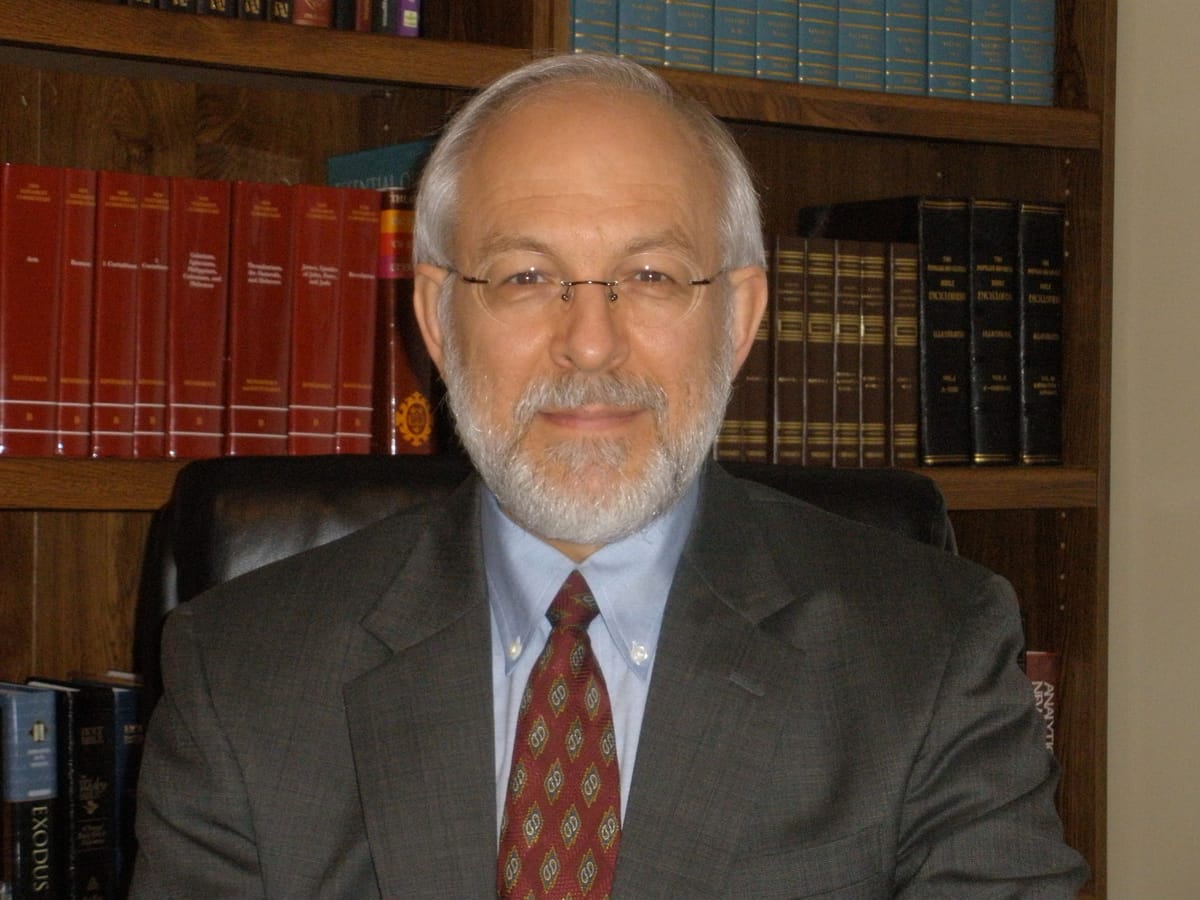We resume where we left off in part 12. The second rule on how to practice jubilee forgiveness is this.
2.) Do not allow your offender to be afraid of you or intimidated by you.
We find this also demonstrated by Joseph.
Genesis 45: 2 And he wept aloud: and the Egyptians and the house of Pharaoh heard.
3 And Joseph said unto his brethren, I am Joseph; doth my father yet live? And his brethren could not answer him; for they were troubled at his presence.
Other ways that word “troubled” could have been translated are that the brothers were dismayed or anxious or even terrified at his presence. Joseph had asked them a question. Is my father still alive? But they were petrified with fear and shock so much so that they could not even speak a word.
Picture yourself as one of those brothers who had planned to kill your brother and now after all the harshness he has already put you through with the sacks of grain and keeping Simeon in Egypt and all that, and now this king of Egypt reveals to you that he is the very brother you had planned to murder 22 years ago!
Wouldn’t you feel considerable anxiety or even fear and terror at this moment? I know I would. But that is not what Joseph desired for them. He did not want them to fear him.
4 And Joseph said unto his brethren, Come near to me, I pray you. And they came near. And he said, I am Joseph your brother, whom ye sold into Egypt.
Why did he tell them to come near to him? Obviously, because it was a sign of affection. What he really wanted to do was throw his arms around their necks one by one and sob on their shoulders.
He knows that he has fully forgiven them. He knows how much he loves them and he only desires their love in return. He does not want them to fear him.
Of course, we can understand their reactions because all they have seen and experienced from him up until this point is that he had accused them of being foreign spies, then of being thieves because of all the money in their sacks which they knew he had put there, and then of the incident with the divining cup, which again they must have realized by now that Benjamin had not stolen.
So here is this rather harsh man who says he is Joseph and who now wants to embrace them closely. You can understand why they would be paralyzed with fear.
1 John 4:18 There is no fear in love; but perfect love casteth out fear: because fear hath torment [Or alternately, “fear has to do with punishment or correction.”]. He that feareth is not made perfect in love.
Well, these guys are having a hard time coming up with perfect love for Joseph because they have great fear at this point, fear that he will punish them. Again, this has direct application to many situations where we can extend forgiveness.
For example, say someone has offended you and they know it, and you have not seen them in a long time. Then suddenly, the two of you meet again. Maybe it’s a family member and you attend a family reunion and there they are.
That first eye contact between both of you is going to reveal something to them and to you. Do you see some hints of dread or anxiety on their face? Because they really don’t want to see you; does it seem very uncomfortable for them?
In that instant, you have the opportunity to savor the moment and enjoy their discomfort. But is that practicing jubilee forgiveness? No, it is giving in to those old feelings of anger and resentment, perhaps bitterness. It indicates that we have not really forgiven them.
Instead, at that first eye contact, if we can smile a natural, full-face smile—not a forced smile, a mouth-only smile, but a full-face smile, then that is a pretty good indicator to them and to ourselves that we have truly forgiven that person.
“But they didn’t tell me they’re sorry yet!” someone is sure to be thinking. But remember, jubilee forgiveness is unconditional forgiveness. It does not require their repentance. If it does, then it is conditional forgiveness and it is falling short of being an overcomer. It is not true forgiveness. Let us remind ourselves of the example of Jesus.
Do you remember how just before the crucifixion that Peter denied Christ and they all abandoned him out of fear for their own lives? Jesus had even prophesied it when he quoted the scripture that says: I will smite the shepherd, and the sheep of the flock shall be scattered abroad.
Then on resurrection Sunday, all the apostles are locked in a room, again out of fear, and Jesus appears in their midst. Would they not have been in about as much shock and paralysis as were Joseph’s brethren? Or even more?
Moreover, did not Jesus have the perfect opportunity to lambaste His followers for deserting him at His hour of greatest need? But instead, what did Jesus say? He said:
John 20:19 … Peace be unto you.
20 And when he had so said, he shewed unto them his hands and his side. Then were the disciples glad, when they saw the Lord.
21 Then said Jesus to them again, Peace be unto you: as my Father hath sent me, even so send I you.
22 And when he had said this, he breathed on them, and saith unto them, Receive ye the Holy Ghost:
There is not one word of condemnation there, is there? Jesus put them at ease: Peace be unto you. Not only did He not condemn them; He gave them Holy Spirit. He gave them a great gift.
Had He forgotten what how they abandoned Him? Of course not. Jesus knew all things; He did not forget literally. But He did forget in the sense that He would never bring it up to use against them. And we should do likewise.
In response to our earlier teaching in this series, someone wrote this to me: “Since God is able to forget our sins and since He is our perfect example, should we not try to also forget (or strive to forget) wrongs done to us?
“Or, should we forgive but remember so as to avoid a repeat offense in the future?”
In addition to what we just learned from the example of Jesus, we must also remember that when we say “forgive and forget,” we do not mean to literally forget.
Because if it was an offense to cause significant pain, then, chances are, we are not ever going to forget it. Does God really forget our sins in the sense that He cannot remember something? No.
But as God does, what we mean by forgetting it, is that we choose to not hold it against them. This does not mean that we ignore the offense, nor that we deny what happened, nor that we trivialize it, and all those other things we discussed previously.
But we make a decision of our will whereby we choose to not hold it against them. This, too, is illustrated in Scripture.
2 Corinthians 5:19 To wit, that God was in Christ, reconciling the world unto himself, not imputing their trespasses unto them; and hath committed unto us the word of reconciliation.
You see, just as Joseph desired a mutual love relationship with his brothers, so our heavenly Father desires a Father-son relationship with us. Paul says it this way.
Romans 8:15 For ye have not received the spirit of bondage again to fear; but ye have received the Spirit of adoption, whereby we cry, Abba, Father.
The word Abba there is derived from a Scandinavian rock group—oh, sorry about that. Well, actually, there are beautiful prophetic connections having to do with that band and God’s Plan, but we cannot detour that at this juncture.
The word Abba is from the Aramaic and it has the same connotation as how we use the term “Daddy.” It is a very intimate, personal and affectionate term of endearment. Paul says that this is the kind of relationship we can have with our heavenly Father.
If you are like me, though, that might not be the easiest thing in the world to attain. I am referring to those of us who had very bad or non-existent relationships with our human fathers.
In my case, as a young Roman Catholic boy, I came to understand God the Father in this way. My nuns and priest-teachers may not have intended it this way, but my picture of the Father was of this great big, fearful king who sat on this huge throne, who was ready to fling you into everlasting hell fire if you didn’t toe the line with all the rules and regulations of the ten commandments, plus all the additional rules and commandments of the church.
I was in nearly perpetual fear of that all my Catholic boyhood. Thank God, He saved me out of that with the biblical understanding that my eternal salvation is not based upon my works, but upon faith in the shed blood of Jesus alone!
Later on, when I came to understand how God will ultimately save all mankind, well, then I could really come to that Abba-Daddy relationship with my heavenly Father. Oh, what a wonderful Daddy He is!
(To be continued.)
~END~




